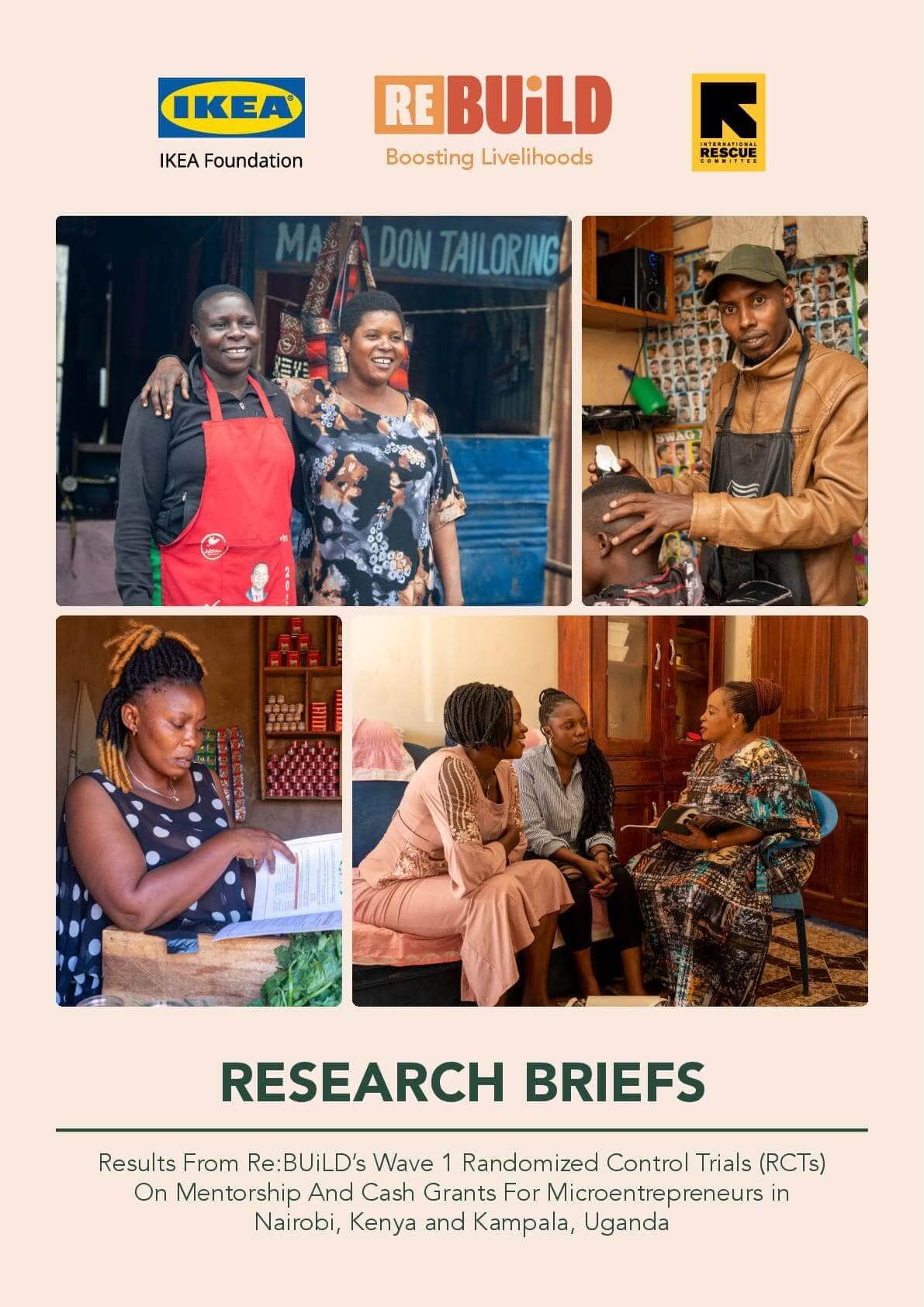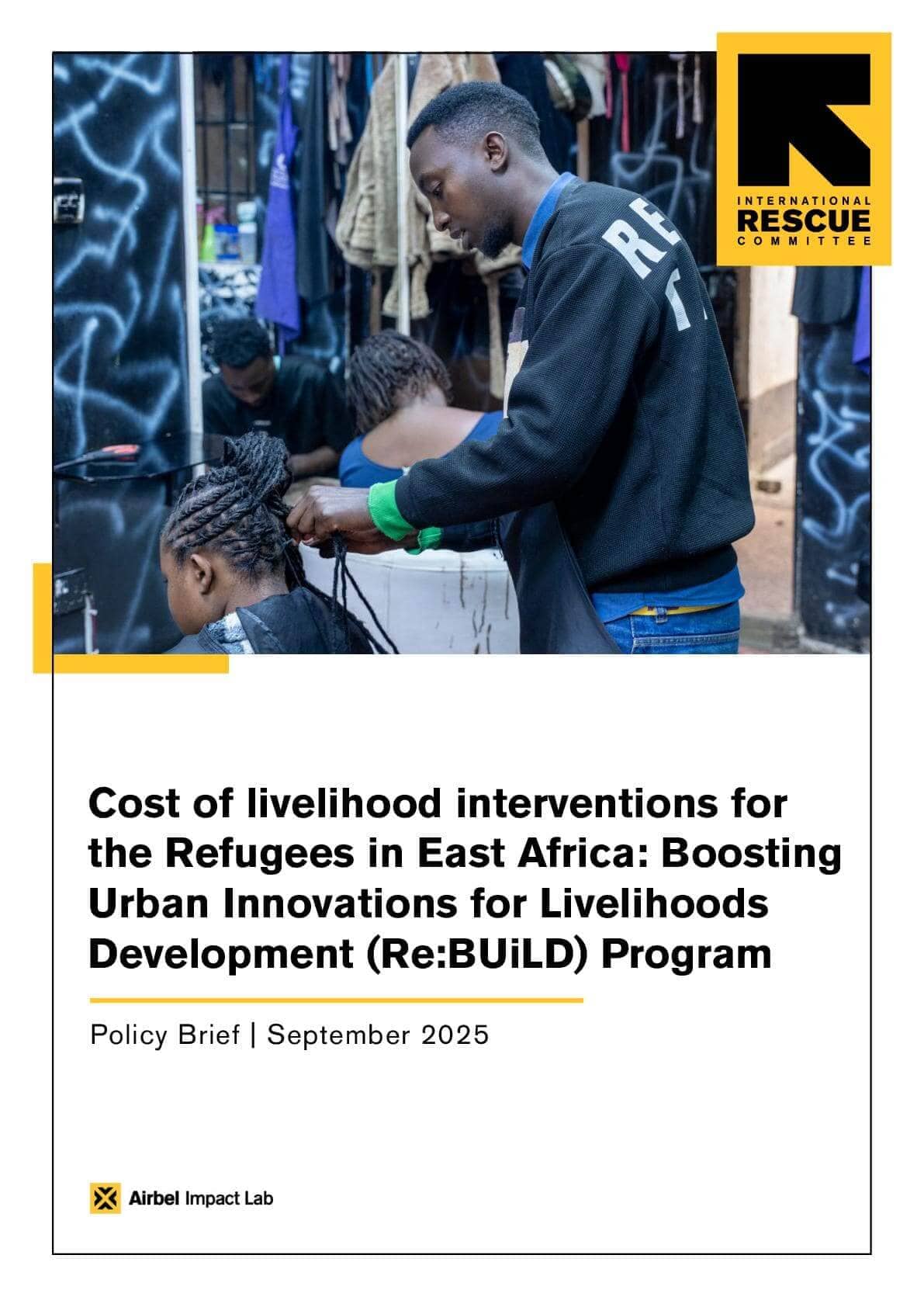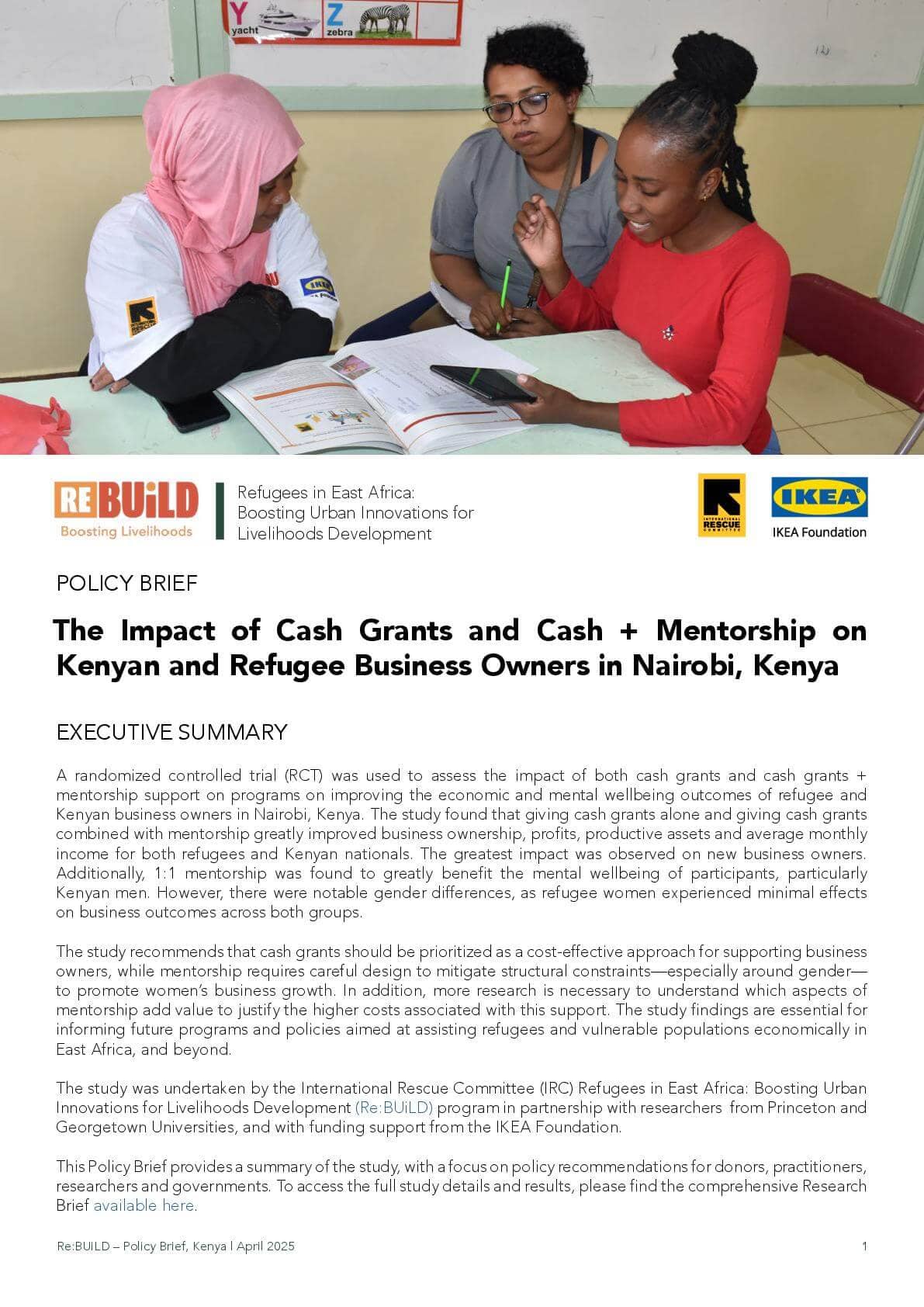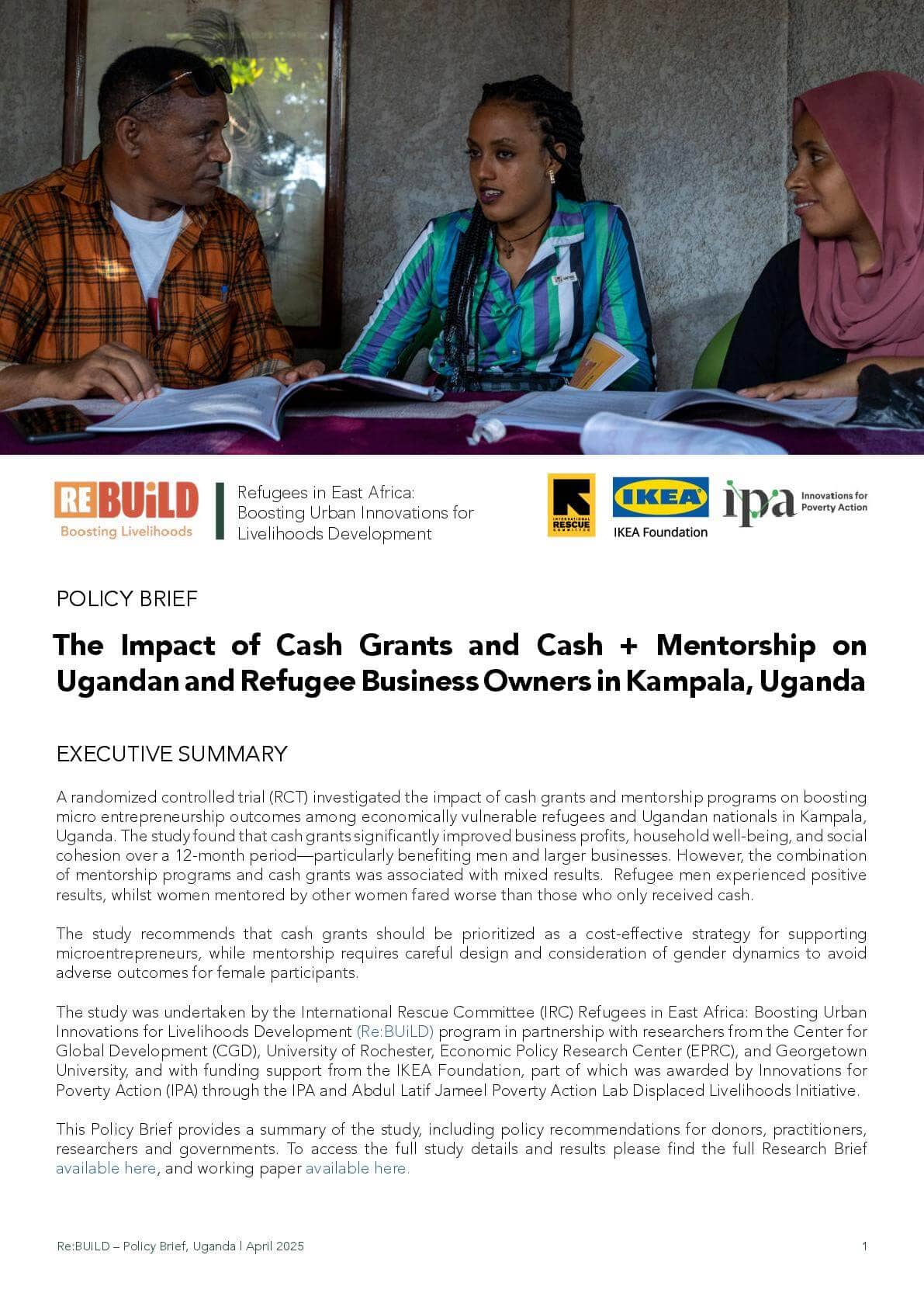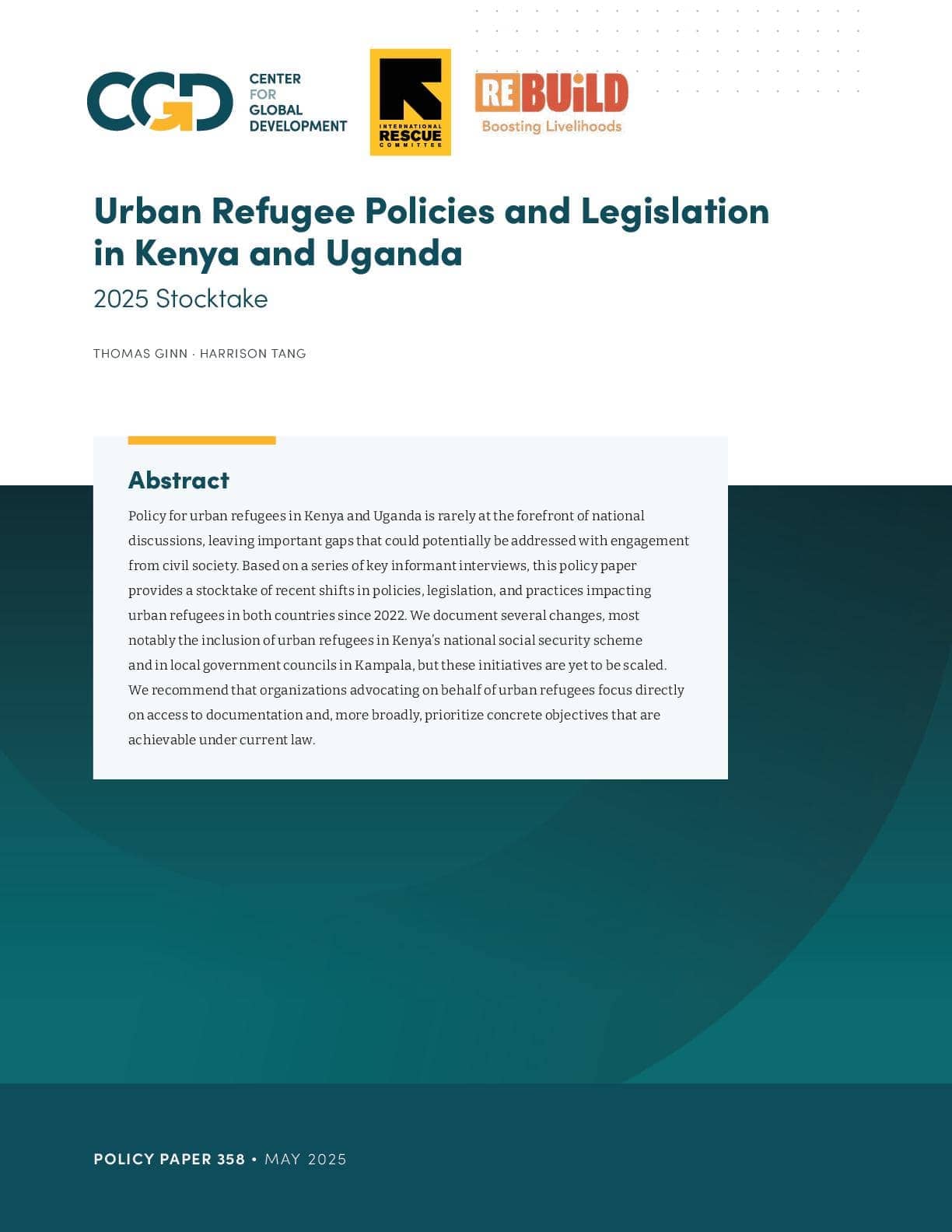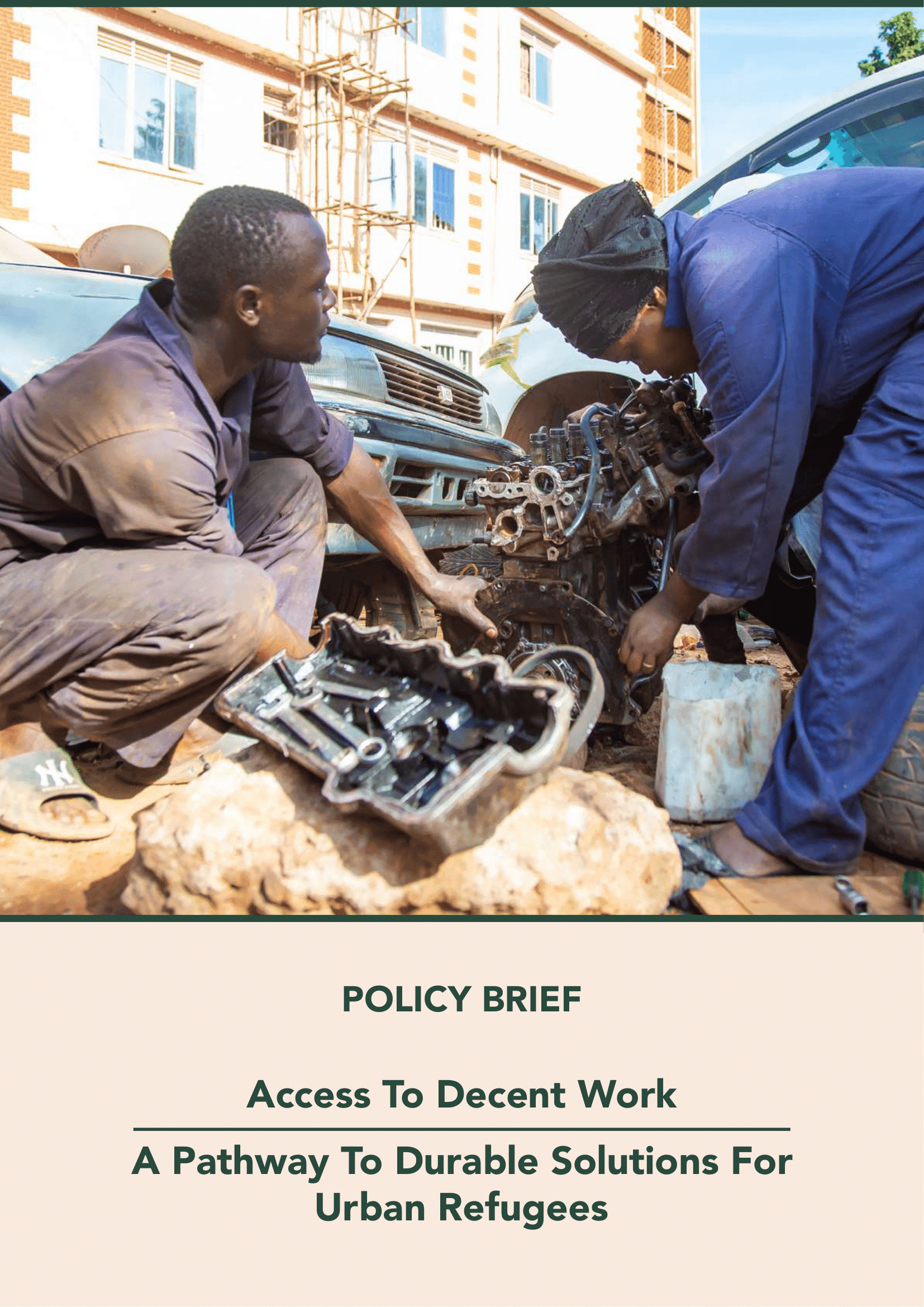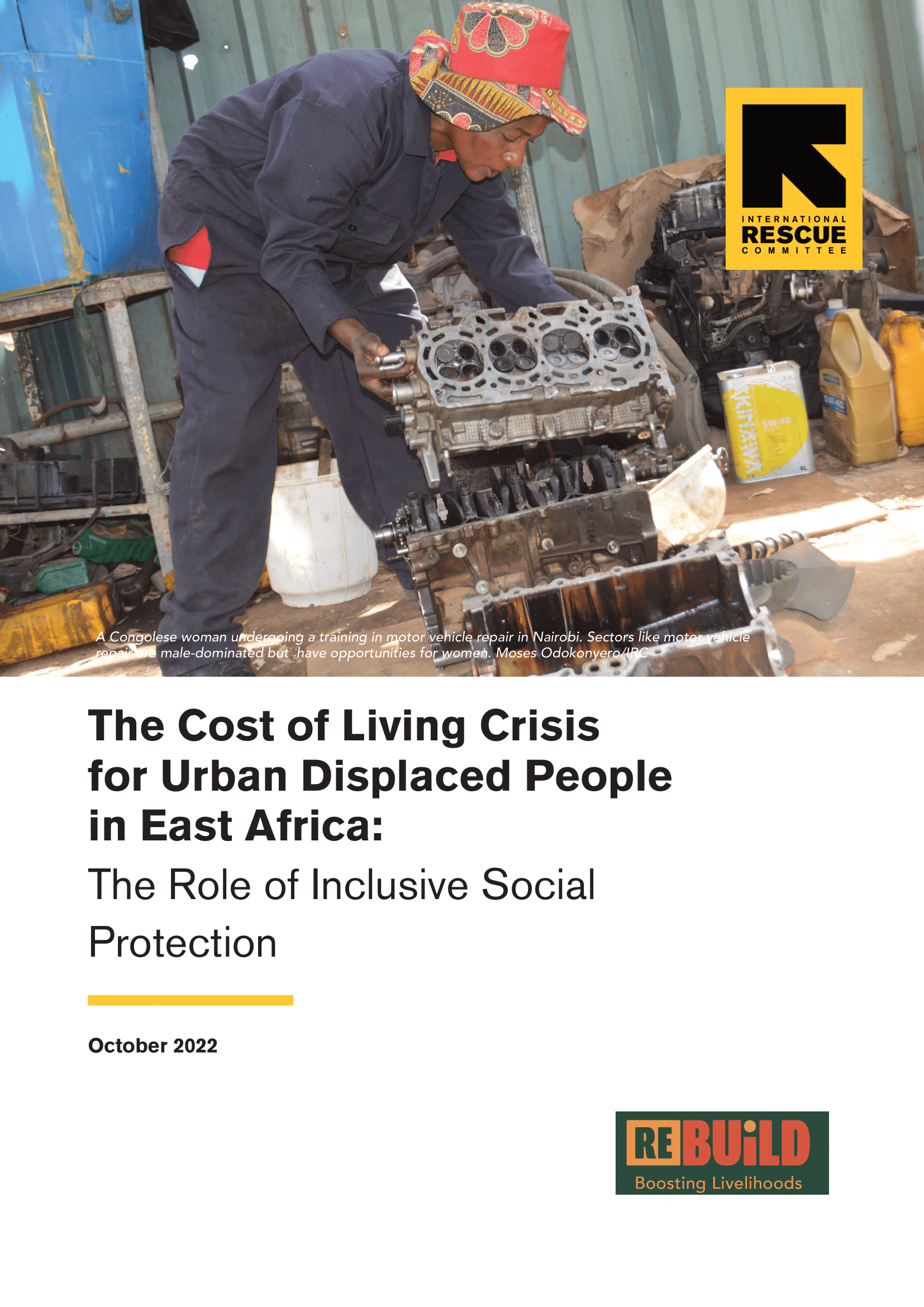Re:BUiLD Wave 1 RCT Research Brief
Re:BUiLD Wave 1 RCT Research Brief
Re:BUiLD conducted two large-scale randomized controlled trials (RCTs) in Kampala, Uganda and Nairobi, Kenya with a total of 4,000 participants. Both looked at one common dimension of livelihood programs supporting microentrepreneurs: mentorship services where the mentors were microentrepreneurs themselves. Administered from the IRC’s Livelihood Centers in each capital, the studies have the potential to inform IRC’s programming around the world as well as other many policy organizations looking to improve microentrepreneurs' livelihoods in urban settings.
In this research brief, we focus on the impact on economic and psycho-social outcomes of mentees and the results from the cost effective analysis conducted by the IRC’s Best Use of Resources team. We highlight differences in results for participants according to their refugee status and gender and offer recommendations for practitioners, researchers, and policy makers.
